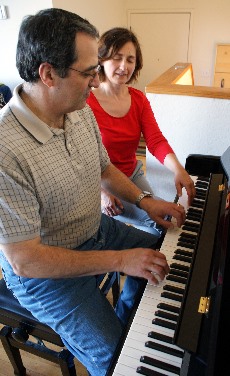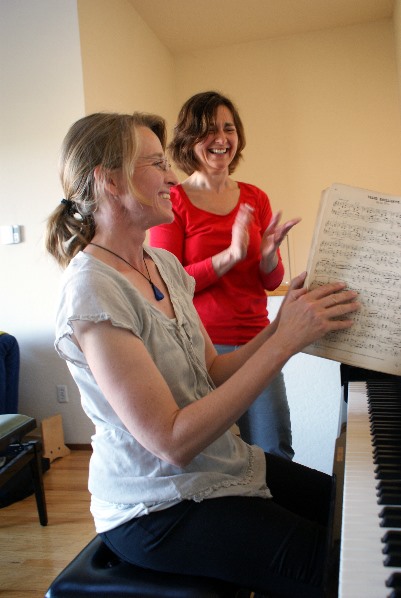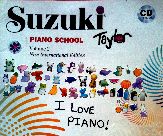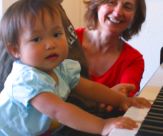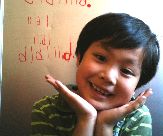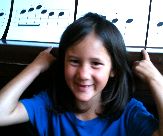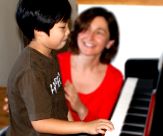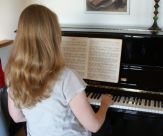Adult Beginners
... is it ever too late to start ?
|
According to a Japanese proverb, life starts all over again at age 50. While not everyone agrees with this philosophy, even skeptics cannot deny the revitalizing effect of learning a musical instrument even at a mature age. Brain research indicates that playing musical instruments activates many more different areas of the brain than any other activity. There are no significant differences in the MRI scans of a software engineer and a poet, but the picture of a musician’s brain is different: the left and right sides of the brain are much more neurally interconnected than those of people in any other profession. Stimulating different parts of the brain through music means not only stimulating more brain cells but also the production of new brain cells. In fact, many doctors also believe that learning an instrument, even in old age, might help prevent illnesses like Alzheimer’s disease. |
What method ? The Suzuki method is commonly associated with children since it was originally developed specifically for them.
|
However, Agnes encourages adult beginners to give Suzuki a try. Adults as well as children can benefit from its emphasis on learning pieces by ear. It helps not only train the ear, but also makes it possible to focus on the technique of the student without the distraction of learning to read a written score. As a student’s technique advances, he/she will also start learning to play pieces by reading. Agnes also has a traditional curriculum ready for those beginners, who prefer to trust their eyes rather then their ears. For instance, the Festival Collection edited by Helen Marlais is a wonderful classical repertoire, designed for students who learn their pieces by reading. In any case, the curriculum will be tailored to the adult student’s needs and interests. |
Returning Adults
Return to something that really made your heart sing
|
|
Did you learn to play as a child, but haven’t touched the piano for decades? Have you tried to play your old pieces but your fingers just feel too rusty now? If so I have good news: depending on how long you played as a child, it is possible to regain (or get close to) your past level of proficiency. One more thing to cheer us up: Playing music well requires not only great technical skills, but also life experience. Our life experience can make us understand music better. In other words, in music at least, time can work for us instead of against us! In addition, the joy of playing an instrument does not depend on our level of ability - otherwise few of us would have gotten beyond the first piano book. |


